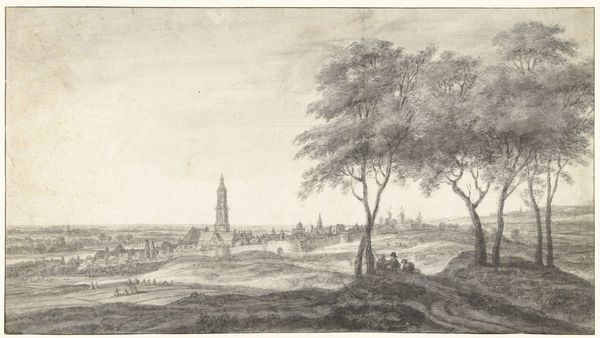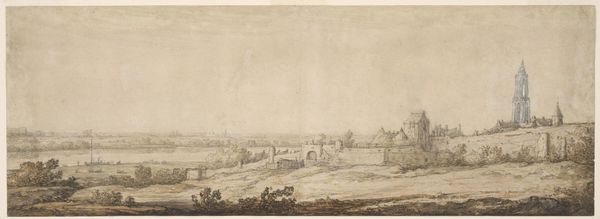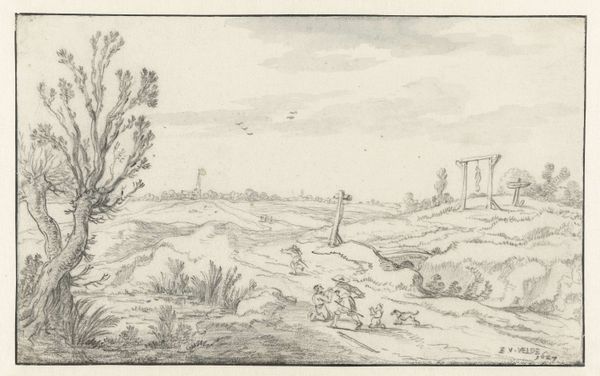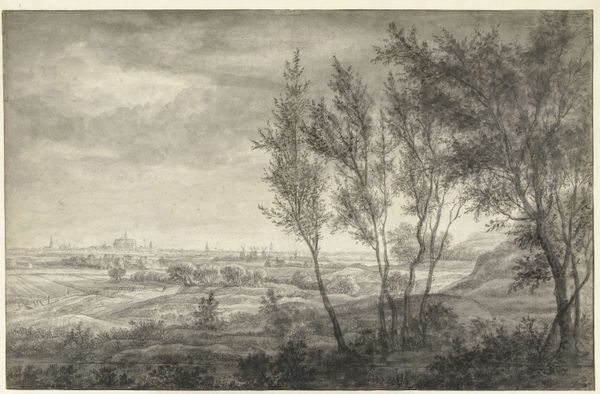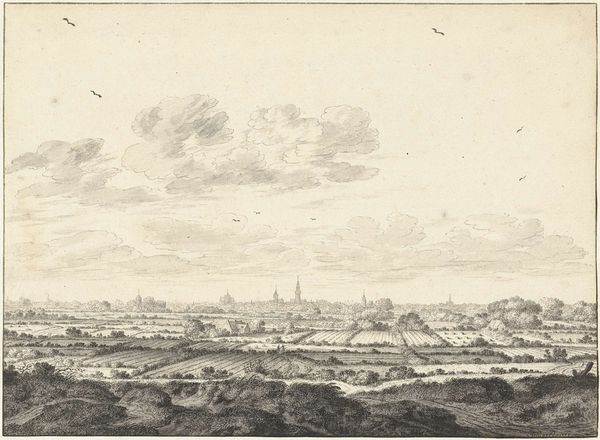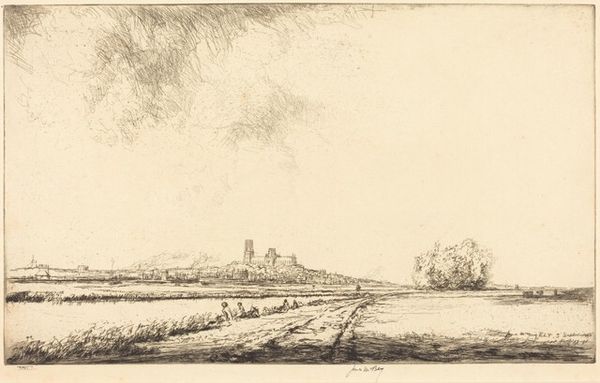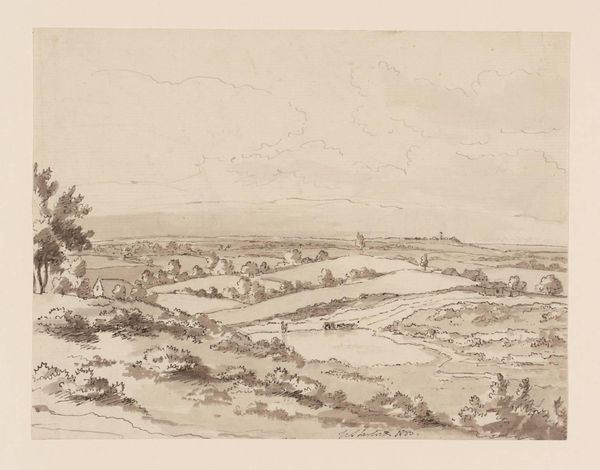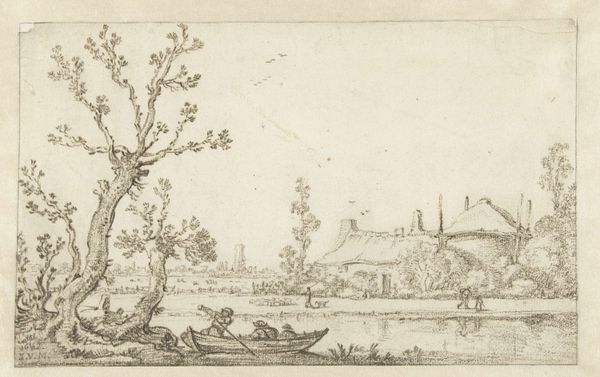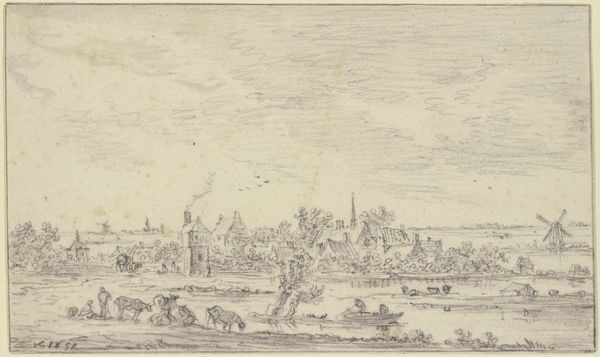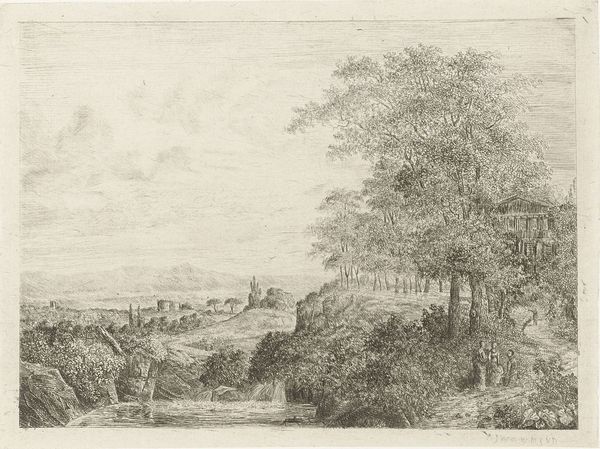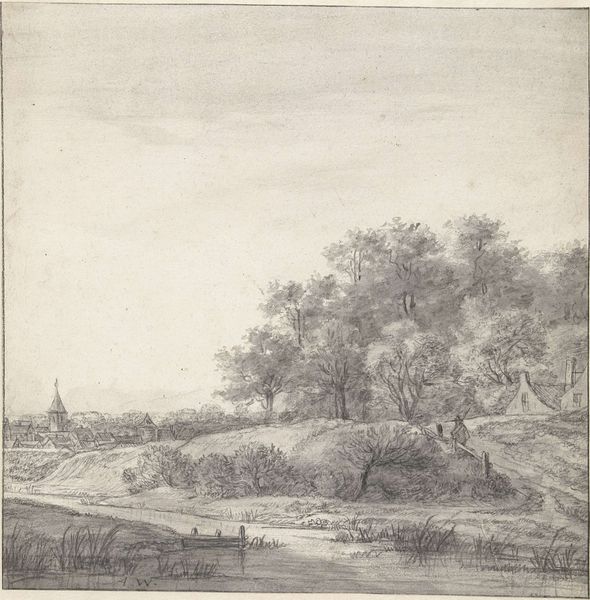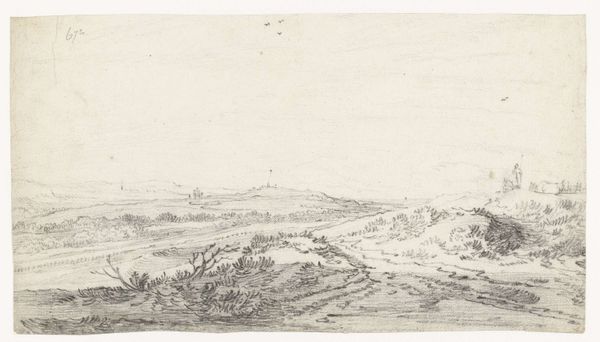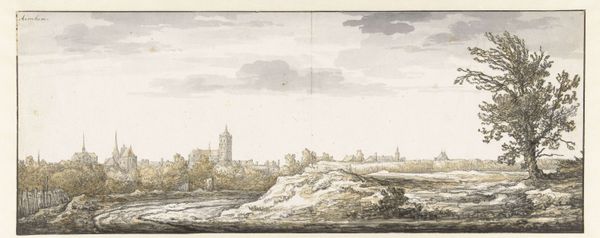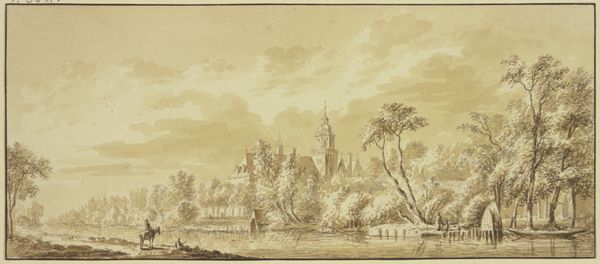
drawing, paper, pencil, graphite
#
drawing
#
dutch-golden-age
#
landscape
#
paper
#
pencil
#
graphite
#
cityscape
#
realism
Dimensions: height 92 mm, width 151 mm
Copyright: Rijks Museum: Open Domain
Jacob van Ruisdael made this landscape with a view of Haarlem using pen and brown ink with gray wash, likely in the mid-17th century. Look closely, and you’ll see how the material’s inherent qualities influence the appearance of the artwork, dictating the use of line and wash. Ruisdael deftly applied the ink with a quill to capture the textures of the Dutch landscape. The thinness of the ink, combined with the paper's absorbency, allowed for the creation of delicate lines and subtle gradations of tone. It speaks to the ubiquity of the scene, and the readily available materials. Consider the social and cultural significance of this choice: the pen and ink drawing was accessible, reproducible, and democratic in ways that an oil painting never could be. It underscores the artist’s close connection to the land, and his intention to communicate the essence of Haarlem to a wide audience. By appreciating the materials, processes, and social context in which Ruisdael worked, we can begin to challenge traditional distinctions between fine art and craft, and gain a deeper understanding of the full meaning of this beautiful drawing.
Comments
No comments
Be the first to comment and join the conversation on the ultimate creative platform.
